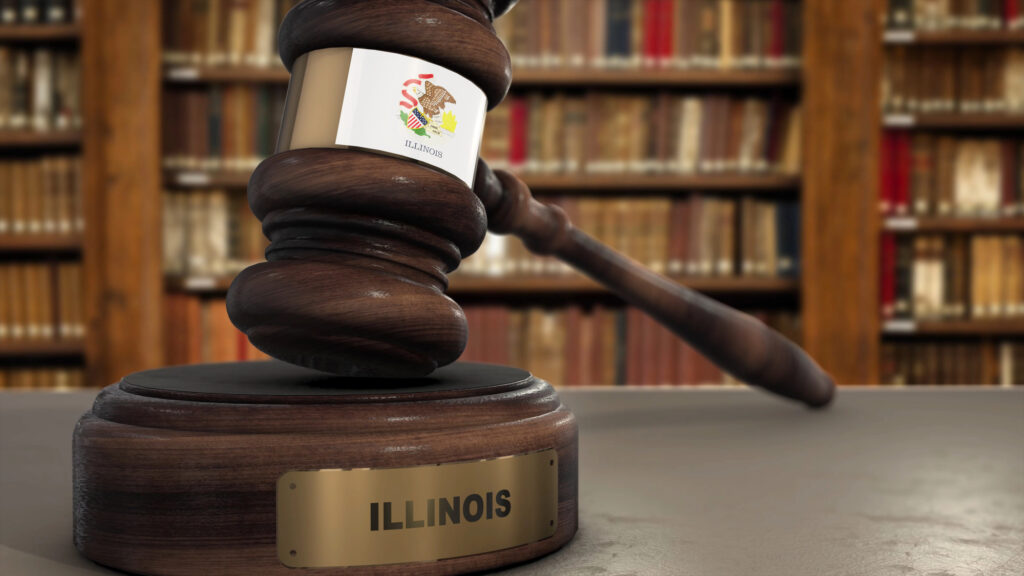Divorce in Illinois has evolved significantly, with clearer guidelines for maintenance and child support, expanded use of technology like Zoom for remote court access, and a growing preference for Mediation and Collaborative Divorce. These changes reflect a shift toward more consistent, accessible, and family-friendly practices. While the system still has room to grow, especially in promoting non-adversarial approaches, recent reforms have made the divorce process more modern and humane for families.
The legal landscape for divorce has changed, shaped by ongoing legislative proposals, societal shifts, and advancements in technology. While not every proposed law has become reality, the changes that have occurred in recent years have dramatically affected how families experience the divorce process.
Changes to Legal Guidelines for Maintenance and Child Support
In the past, there were few rules guiding judges on how to award spousal maintenance (alimony). When I first began practicing, maintenance was highly discretionary, based more on how creative an attorney could be and how generous or conservative a judge chose to be. Around 10 years ago, Illinois introduced formal guidelines for maintenance, which created more consistency across cases.
But even those guidelines have changed. Initially, maintenance payments were taxable to the recipient and deductible for the payer. That changed about six years ago when federal tax law eliminated those provisions, reshaping how maintenance is negotiated and awarded.
Child support has also undergone a transformation. It used to be a straightforward percentage of the payor’s net income—20% for one child, 28% for two, and so on. But now, Illinois uses an “income shares” model that considers the incomes of both parents as well as parenting time. This more holistic approach better reflects the realities of modern parenting.
Parenting Schedules and Rights
Parenting plans have also improved. Early in my practice, we often added clauses based on recurring client problems, like the right of first refusal, which required one parent to offer parenting time to the other before using a babysitter. At the time, this was purely a contractual idea. But over time, it became so common and effective that it is now codified in Illinois law.
These shifts show how practical legal innovations, initially created case-by-case, can eventually influence statewide standards.
Technology and the Rise of Remote Court Access
One of the most visible changes came with the COVID-19 pandemic, which ushered in a new era of remote court access. While major hearings and trials are often still held in person, status conferences and minor hearings now take place via Zoom about 90% of the time in Cook County. Some judges are encouraging a return to in-person proceedings, but the infrastructure is now in place for hybrid hearings, complete with “Owl” video technology that allows for seamless participation from remote locations.
This shift has made the court system more accessible. Attorneys and clients can attend hearings from anywhere, even on vacation. It has even allowed some attorneys to expand their practices into counties or states that they might not have worked in before.
Mediation and Collaborative Divorce Gain Ground
When I first started practicing law, I didn’t know about either Mediation or Collaborative Divorce. That changed around 2009 when I became trained in both. Since then, these alternative dispute resolution methods have grown dramatically in popularity and accessibility. Twenty years ago, most people thought divorce only happened in a courtroom. Now, Mediation and Collaborative Divorce offer more respectful, cost-effective, and family-centered options that many divorcing couples are choosing.
Are These Changes Better for Families?
We have learned through experience what works and what doesn’t work. There is still room for improvement, especially in making dispute resolution training a requirement for attorneys who practice family law. If more lawyers prioritized collaboration over conflict, the entire divorce process could become healthier and more constructive for families.
Final Thoughts
The divorce process in Illinois has come a long way and it is still evolving. From revamped child support calculations and clearer maintenance guidelines to remote hearings and a growing emphasis on peaceful resolution, these changes are positive steps forward. Continued innovation and a deeper commitment to family-centered legal practice will mean that the future looks brighter for families going through one of life’s most difficult transitions.
The Law Offices of Patrick Markey, P.C., are located at 180 Stetson Avenue, Suite 3500, Chicago, Illinois. You may call us at 312-223-1764.
Patrick Markey is a Chicago based attorney who is an advocate of no court divorce options. He believes Collaborative Divorce and Mediation create better outcomes to your divorce process.
Mr. Markey is a member of Super Lawyers, an elite group of the top 5% of top lawyers (https://www.superlawyers.com). He is also listed as a top divorce lawyer by AVVO (https://www.avvo.com) and is a fellow of Collaborative Divorce Illinois (https://collaborativedivorceillinois.org), as well as a member of The Chicago Bar Association (https://www.chicagobar.org)

